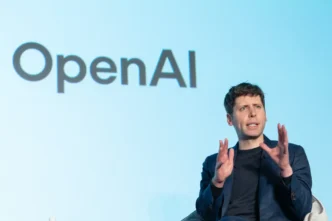A high-profile research paper claiming major productivity gains from artificial intelligence is now at the center of academic controversy. MIT has publicly distanced itself from the study, urging that it be “withdrawn from public discourse” over serious concerns about its integrity.
The disputed paper, titled “Artificial Intelligence, Scientific Discovery, and Product Innovation,” was authored by Aidan Toner-Rodgers, a former doctoral student in MIT’s economics program. The research made bold claims: it suggested that implementing an AI tool in a major—but unnamed—materials science lab led to more scientific discoveries and an uptick in patent filings. However, it also noted that researchers reported lower satisfaction with their work.
Initially, the paper drew significant praise. Leading MIT economists Daron Acemoglu, a recent Nobel laureate, and David Autor had both endorsed the work last year. Autor even told the Wall Street Journal he was “floored” by the findings. In Friday’s statement from MIT, the two economists acknowledged the paper’s widespread circulation despite lacking peer-reviewed publication, stating that it had been “extensively discussed in the literature on AI and science.”
But that support has since evaporated. Acemoglu and Autor now say they have “no confidence in the provenance, reliability or validity of the data and in the veracity of the research.” According to the WSJ, a computer scientist with expertise in materials science flagged issues with the study back in January, prompting the economists to alert MIT and triggering an internal investigation.
Due to student privacy protections, MIT has not released details of its internal review. However, the university confirmed that the student is no longer affiliated with MIT. Though MIT did not name Toner-Rodgers in its statement, both the paper’s preprint and earlier press coverage identify him as the author.
The paper had been submitted to The Quarterly Journal of Economics and posted on the preprint server arXiv. MIT has formally requested withdrawal from both platforms. Yet, arXiv policy requires authors themselves to initiate withdrawal requests, and MIT says Toner-Rodgers has not yet complied.
As scrutiny of AI’s role in scientific research deepens, this case underscores the need for transparency and data validation in high-impact academic claims—especially those used to promote the supposed benefits of emerging technologies.













